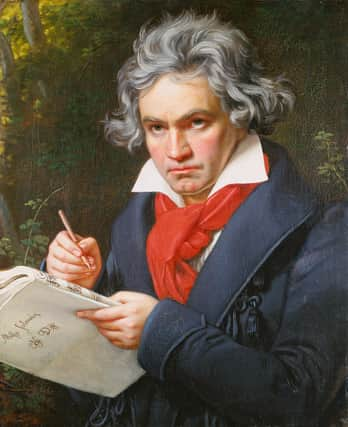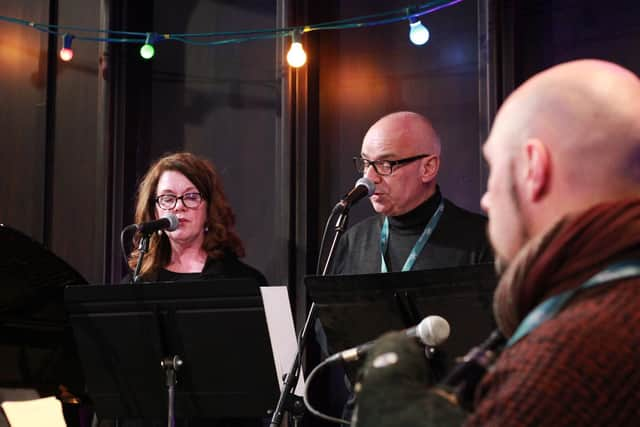Beethoven's links to Gaelic music unearthed in new BBC ALBA documentary


The documentary will spotlight new findings from research conducted by German musicologist and Gaelic scholar Dr Michael Klevenhaus. After investigating the connection between Gaelic melodies and Beethoven’s expansive works.
Dr Klevenhaus was reading a scholarly work by piper Allan MacDonald in 2015 when he noticed a footnote describing the composition Enchantress Farewell, written by Sir Walter Scott and arranged by Beethoven, was rooted in Mhnathan a’ Glinne Seo (Women of the Glen).
Advertisement
Hide AdAdvertisement
Hide AdThis led Dr Klevenhaus to explore the connection in greater depth over a five year study, ultimately discovering that Beethoven had in fact composed new versions of 47 Scottish melodies for Edinburgh based folklore collector and publisher George Thomson.


Viewers will follow Dr Klevenhaus as he travels from Beethoven’s birthplace Bonn to Vienna, where Beethoven worked, and through the Scottish highlands, islands and lowlands to unearth the connection and Gaelic roots in Beethoven’s work - meeting some of Scotland’s finest Gaelic singers and musicians such as Màiri MacInnes and Allan MacDonald along the way.
Thanks to their help and depths of knowledge, Dr Klevenhaus is set on a successful path to reveal the hidden Gaelic melodies buried in various Beethoven compositions. In turn, the documentary also highlights Dr Klevenhaus’ additional discovery that George Thompson, who commissioned these, had deliberately not disclosed the Gaelic origins of the melodies to Beethoven and indeed the public at the time.
The compositions were, according to findings highlighted in the documentary, stripped of their Gaelic titles, lyrics and anything that could be tainted with Jacobitism due to the loom of the Jacobite Rebellion in 1745. Such links are believed by Dr Klevenhaus to be seen between Beethoven’s love song Erin o’ Erin and a song by Sìleas Na Ceapaich about the 1715 Jacobite Uprising.
Dr Klevenhaus said: “Gaelic songs are often highly political, but the meaning of these songs was hidden from Beethoven.
“Beethoven was strongly political, if he had been sent those words what a different song we would have today!
“What would a radical republican like Beethoven have made of a political song by Sìleas Na Ceapaich, about people rising united against the king?
“It’s been fascinating to discover the highly political nature of some of the original songs.
Advertisement
Hide AdAdvertisement
Hide Ad“It seems likely that these songs were deliberately sanitised to make them more suitable for an upper-class Lowland audience.”
The BBC documentary, Òrain Ghàidhlig Beethoven, will air on Wednesday, December 16 at 9pm. It will be followed by a concert of Gaelic songs and Beethoven’s arrangements of them – Beethoven: A’ Chuirm Ghàidhlig at 10.30pm, both on BBC ALBA.
A message from the Editor:
Thank you for reading this article. We're more reliant on your support than ever as the shift in consumer habits brought about by coronavirus impacts our advertisers.
If you haven't already, please consider supporting our trusted, fact-checked journalism by taking out a digital subscription.